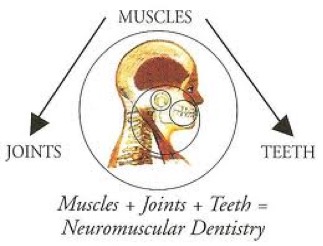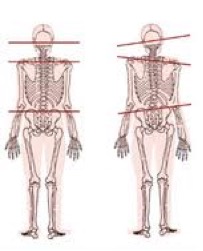 There is more to dentistry than just healthy teeth and gums. The mouth is a functioning system that allows you to chew, swallow, speak and yawn. This system involves the teeth and how they bite as well as the jaw joints, facial muscles and how these interact with the head, neck and spinal column. If this system is out of balance it can result in pain and loss of function. The neuromuscular dentist will restore optimal function of the bite, joints and muscles thereby eliminating the painful symptoms.
There is more to dentistry than just healthy teeth and gums. The mouth is a functioning system that allows you to chew, swallow, speak and yawn. This system involves the teeth and how they bite as well as the jaw joints, facial muscles and how these interact with the head, neck and spinal column. If this system is out of balance it can result in pain and loss of function. The neuromuscular dentist will restore optimal function of the bite, joints and muscles thereby eliminating the painful symptoms.
The human body is an amazing and resilient thing and even though there may be misalignments and functional imbalances the body can sometimes tolerate this for many years without symptoms. That is why neuromuscular dentistry is not just about patients with facial pain, neck and shoulder pain, headaches and jaw joint (TMJ) problems. Any tooth restoration or tooth movement with orthodontics, even very minor, can upset the balance of the neuromuscular system if it isn’t performed with consideration to the overall function and preservation or improvement of the harmony of the overall system.
Causes of Bite Imbalance
Chewing is not optional! We must chew in order to obtain nutrition and survive. So no matter how poorly aligned the teeth are, the nerves and muscles will adapt to find the best fit for chewing even if this compromises the function and comfort of the joints and muscles. The teeth will always win over the joints and muscles.
A bite misalignment can be caused by genetic factors but often developmental issues result in a bite problem. Childhood allergies resulting in predominant mouth breathing or an incorrect tongue habit during swallowing will adversely affect the normal growth and development of the facial structures, including the bite. Orthodontics and dental restorations that don’t take into account muscle and joint position can create misalignments. Tooth extractions where the teeth are not promptly replaced will cause the teeth and jaw to shift.
Ideally the back teeth should touch evenly and the front teeth should only touch when moving the lower jaw forwards to bite into something. This will allow the large chewing muscles in the cheeks (the masseter muscles) and the TMJ’s to move freely during the chewing process. However if the teeth are misaligned in a way that forces the lower jaw (mandible) backwards the masseter muscles are unable to fire correctly and other muscles need to be recruited. This creates muscle strain and trigger points over time. Muscle trigger points can create many pain referral patterns in the head and neck.
Symptoms
As the mandible is forced further back the TMJ becomes compressed and the cartilage disc becomes displaced and eventually worn. The result is clicking, popping, locking and joint pain. If left untreated it will result in arthritis of the TMJ. Any of the following symptoms can be related to a neuromuscular or TMJ problem:
- Headaches or migraine
- Facial pain
- Pain behind the eyes
- Neck and shoulder pain
- Jaw pain
- Clicking or popping joints
- Clenching or grinding teeth
- Worn teeth
- Limited or painful mouth opening
- Sensitive teeth
- Ear ache and tinnitus
- Dizziness
- Vertigo
- Tingling in the fingers and arms
- Difficulty in swallowing
- Numbness and tingling of the tongue
 Many patients we see at Vision Dental with neuromuscular problems have been suffering with pain for many years. Constantly taking pain relievers or getting adjustments with chiropractors and physiotherapists. At Vision Dental we offer an integrated approach to health and dental treatment and work with allied professionals to obtain a more stable and balanced long term outcome.
Many patients we see at Vision Dental with neuromuscular problems have been suffering with pain for many years. Constantly taking pain relievers or getting adjustments with chiropractors and physiotherapists. At Vision Dental we offer an integrated approach to health and dental treatment and work with allied professionals to obtain a more stable and balanced long term outcome.
Treatment
Once it has been determined that a patient has a neuromuscular problem as a result of a bite and jaw misalignment they are supplied with a custom fitted orthotic which supports them in a balanced neuromuscular neutral bite position. After a few months wearing the orthotic with adjustments to continue rebalancing it as the other allied professionals make adjustments the symptoms normally resolve. A more permanent bite correction can be achieved with functional orthodontics or a full mouth reconstruction.
By taking a more holistic approach the neuromuscular dentist considers the teeth and bite in relation to the body as a whole and focuses on providing a balanced foundation necessary for pain-free function for life.
If you are currently experiencing headaches or other head and neck pain neuromuscular dentistry may be a more complete and holistic solution than taking constant pain medication. Also if you are contemplating major dental work like cosmetic dentistry, orthodontics or extensive restorative work a neuromuscular approach should be considered.
For more information or a complete neuromuscular assessment, call Vision Dental on (02) 9543 4222.
